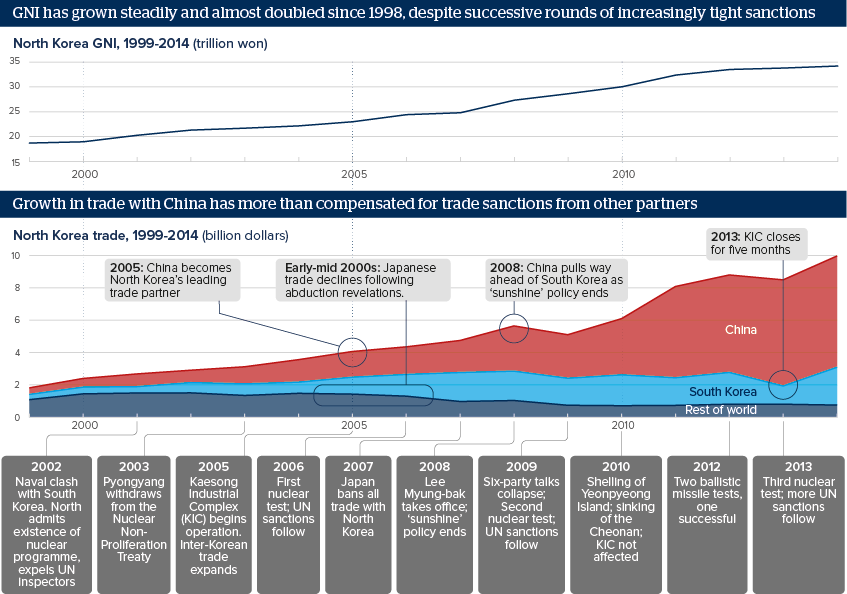North Korea's economy will withstand sanctions
North Korea's economic performance casts doubt on the ability of sanctions to put meaningful pressure on Pyongyang

Source: KOTRA, Bank of Korea, IMF, Oxford Analytica
Outlook
The permanent closure of the Kaesong Industrial Complex this year will reduce trade with South Korea -- the North's second-largest partner by far -- to zero, which will have a significant impact on North Korea's total trade, reducing it by perhaps as much as one-quarter.
However, Seoul's move also means that no party but China has any scope left to apply significant economic pressure on Pyongyang. Since trade has become increasingly important to North Korea's economy, in theory China now enjoys more leverage than ever. However, fear of instability across its border will make Beijing afraid to use this power to the degree that Seoul and Tokyo have done.
Impacts
- North Korea wants and seeks foreign trade and investment; its failure owes more to its fundamental unattractiveness than to sanctions.
- Risk of falling living standards is a lesser threat to the regime than growing awareness of the outside world as a result of trade.
- There is little more that Washington and its allies can do to 'punish' Pyongyang.
- North Korea's economic growth may be enough to buy the support of the elite, but not to solve a chronic food shortage.
See also
- Drought will slow down North Korea's economic progress - Jul 21, 2017
- North Korea sanctions usher in new era of tension - Mar 4, 2016
- More graphic analysis